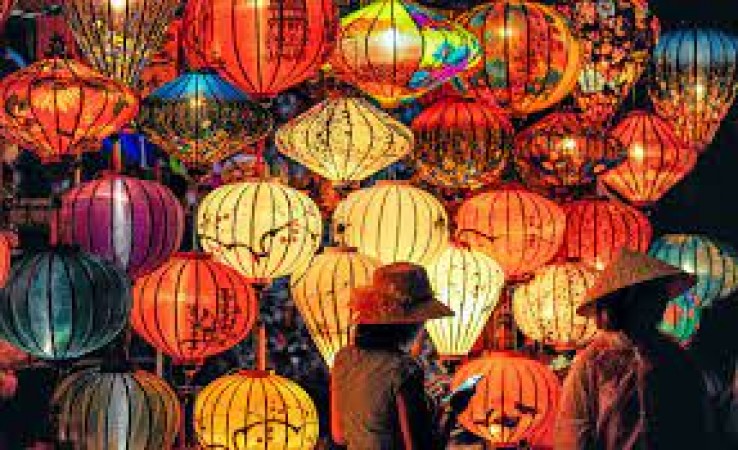
Festivals are an integral part of human culture, bringing communities together to celebrate, commemorate, and pass down traditions from one generation to another. These events hold immense cultural and social significance, playing a vital role in shaping society and reinforcing shared values and beliefs. In this article, we will delve into the importance of festivals in various aspects of life, exploring how they contribute to social cohesion, economic growth, and cultural preservation. Festivals are joyous occasions that mark special events and hold great importance in societies worldwide. Whether they are religious, historical, or seasonal, festivals provide an opportunity for people to gather, connect, and revel in shared experiences. Through these celebrations, individuals strengthen their sense of belonging and create lasting memories.
2. Definition of Festivals
A festival can be defined as a communal event characterized by specific rituals, customs, and traditions. It often involves a series of activities and performances that reflect the cultural, religious, or historical heritage of a community.
3. The Role of Festivals in Society
Social Cohesion and Unity
Festivals play a crucial role in fostering social cohesion and unity within communities. During these events, people from various backgrounds come together to celebrate as one, breaking down social barriers and creating a sense of togetherness. The shared experiences and emotions during festivals strengthen the fabric of society, promoting a harmonious coexistence.
Cultural Preservation and Transmission
One of the most important aspects of festivals is their role in preserving cultural heritage. These events act as a platform to showcase traditional art, music, dance, and crafts. By passing down these practices from generation to generation, festivals become agents of cultural transmission, ensuring that valuable customs and knowledge are not lost over time.
4. Festivals as Markers of Time
Seasonal Festivals
Many festivals are closely tied to the cycles of nature, marking the changing seasons and agricultural milestones. These seasonal celebrations not only serve as a way to express gratitude for nature's bounty but also as an opportunity for introspection and renewal.
Historical and Religious Festivals
Historical and religious festivals commemorate significant events, heroes, or deities that hold deep cultural and spiritual meanings. These festivals often involve rituals, processions, and symbolic acts that reinforce the values and beliefs of a community.
5. Economic Significance of Festivals
Tourism and Local Businesses
Festivals attract a large number of tourists, boosting the local economy. Visitors spend money on accommodation, food, souvenirs, and other goods and services, providing a vital source of income for the host community.
Employment Opportunities
The organization and management of festivals create temporary employment opportunities for the local workforce. From event planning to security, numerous job roles emerge during these times, benefiting the community at large.
6. Festivals and Identity
National Identity
Certain festivals are deeply intertwined with a nation's identity and history. They serve as a unifying force, reinforcing a shared sense of patriotism and belonging among the citizens.
Regional and Ethnic Identity
In diverse societies, festivals also contribute to the celebration of regional and ethnic identities. They highlight the unique cultural practices and traditions that make each community special.
7. Impact of Globalization on Festivals
Homogenization vs. Diversity
Globalization has brought both positive and negative effects on festivals. While it has enabled the exchange of cultural practices and ideas, it has also led to the homogenization of some festivals, diluting their original significance.
Fusion of Traditions
On the other hand, globalization has also sparked the fusion of traditions, leading to the emergence of new and dynamic festivals that blend elements from different cultures.
8. Challenges to Festivals
Commercialization
In some cases, festivals have become commercialized, prioritizing profit over cultural authenticity. This can erode the original spirit and meaning of the celebration.
Environmental Concerns
Large-scale festivals can have a significant impact on the environment due to increased waste, energy consumption, and pollution. It is crucial for organizers to adopt eco-friendly practices to mitigate these effects. festivals are not merely social gatherings; they are powerful expressions of culture and identity. These events foster a sense of community and reinforce the values that bind societies together. Moreover, festivals play a pivotal role in preserving and passing down cultural heritage to future generations. However, as we celebrate these occasions, we must also be mindful of the challenges they face, including commercialization and environmental concerns. By recognizing and addressing these issues, we can ensure that festivals continue to hold their cultural and social significance for generations to come.
KARGIL DIVAS: Top Ten quotes related to the Kargil conflict
Subway India outlets drop tomatoes from menu citing THESE reasons